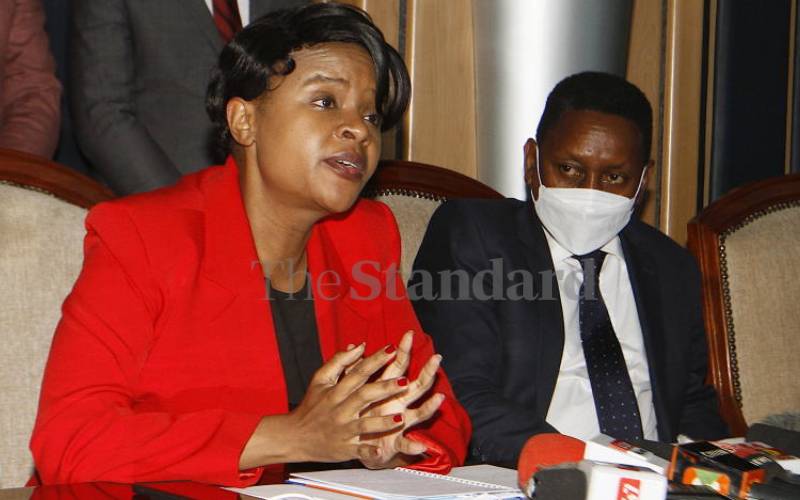×
The Standard e-Paper
Home To Bold Columnists

Health CAS Mercy Mwangangi and NHIF board chair Lewis Nguyai at NHIF Headquarters, Upper Hill, Nairobi. January 31, 2022. [ Jenipher Wachie, Standard]
The National Hospital Insurance Fund (NHIF) cardholders can now breathe a sigh of relief after private hospitals and the Ministry of Health agreed to resolve a pay standoff that has been going on for a while.